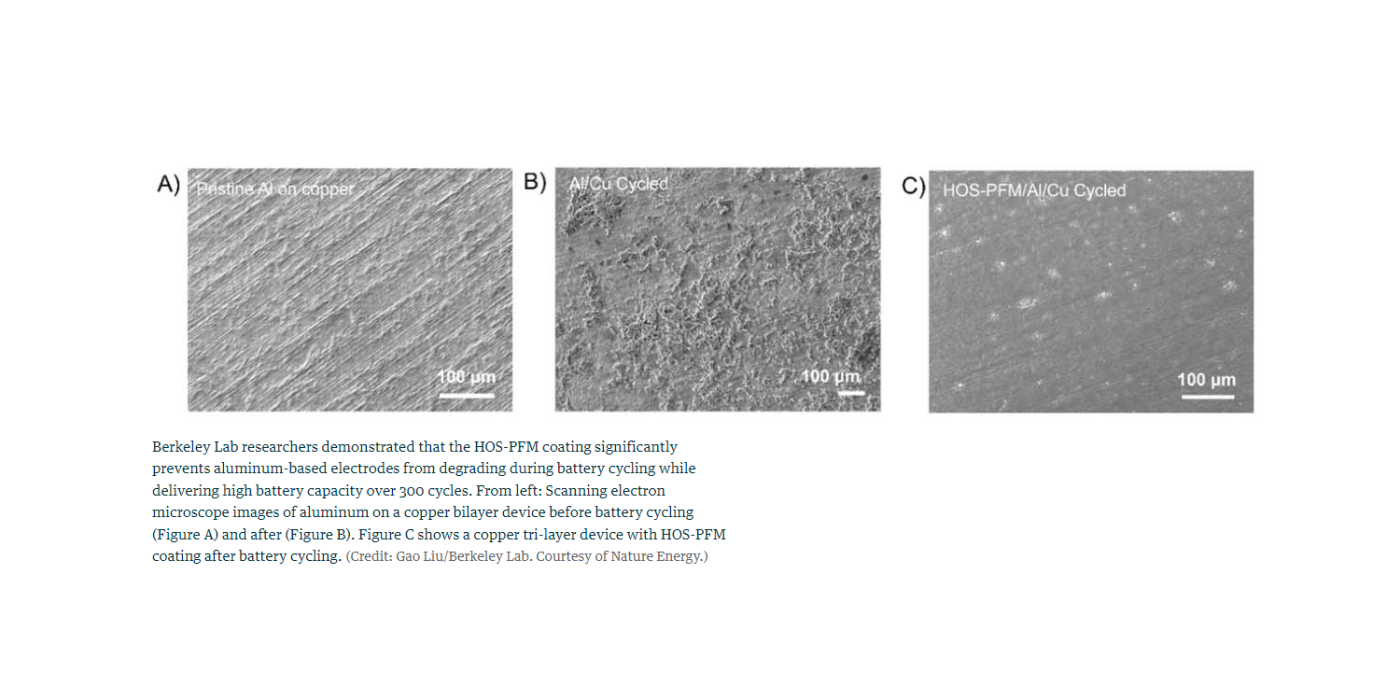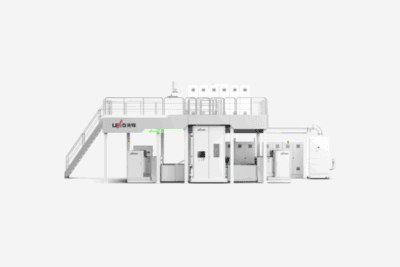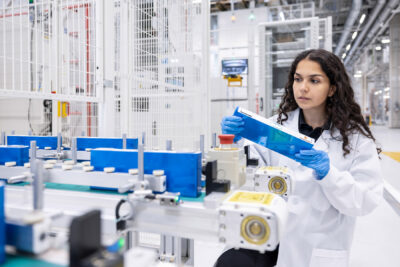Researchers develop polymer coating for longer-lasting batteries
Scientists at the US Department of Energy’s Lawrence Berkeley National Laboratory have developed a conductive polymer coating that could enable longer-lasting and more powerful lithium-ion batteries for EVs.
The lab explains in a press release that the coating, called HOS-PFM, simultaneously conducts both electrons and ions. That, in turn, would ensure battery stability and high charge/discharge rates while extending battery life.
“The advance opens up a new approach to developing EV batteries that are more affordable and easy to manufacture,” says Gao Liu, a senior scientist in Berkeley Lab’s Energy Technologies Area who led the development of the material. The coating also shows promise as a battery binder that could extend the life of a lithium-ion battery from an average of ten to about 15 years, he says.
HOS-PFM is made of a nontoxic polymer. According to Berkeley Lab, the alkyl end-chains melt away at about 450 degrees Celsius, creating vacant “sticky” sites that “grab” onto silicon or aluminium materials at the atomic level. The PFM polymer chains then self-assemble into “spaghetti-like strands” called “hierarchically ordered structures,” or HOS. These act as “an atomic expressway,” on which lithium ions can “hitch a ride with electrons. […] These lithium ions and electrons move in synchronicity along the aligned conductive polymer chains.”
The HOS-PFM coating could enable the use of electrodes containing up to 80 per cent silicon. Such a high silicon content could increase the energy density of lithium-ion batteries by at least 30 per cent, Liu says. And because silicon is cheaper than graphite, the batteries could also be more affordable.
Next, researchers plan to work with companies to scale HOS-PFM for mass production.





0 Comments